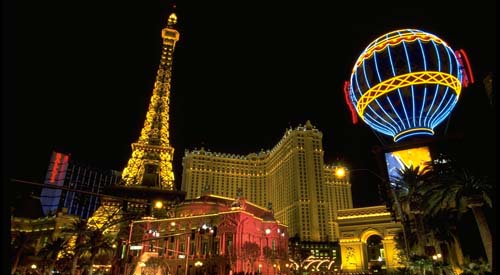
Should the NFL care about Vegas?
It’s a given that, every once in a while, a referee will make a mistake during a sporting event. As much as leagues attempt to prevent it, it will happen. We’re all human, and corrections will often be made. A week 11 NFL football game, however, certainly raised the question as to what extent fans are entitled to be outraged about these mistakes.
With five seconds to play in the San Diego Chargers’ Nov. 16 encounter with the Pittsburgh Steelers, San Diego needed to score. They were down 11-10, and the clock was running, meaning a touchdown was the only realistic option. Quarterback Philip Rivers threw a pass to LaDainian Tomlinson, who threw a lateral pass to Chris Chambers, who then attempted to lateral the ball back to Rivers. Rivers failed to catch the ball, and Pittsburgh safety Troy Polamalu ran the ball into the end zone for the touchdown.
All of that, however, was called back when referee Scott Green ruled Tomlinson’s lateral as a forward pass, nullifying the play. However, Green later admitted that, instead of the play being killed, the play should have been allowed to continue through to the end, providing Pittsburgh either a 17-10 or 18-10 win. Instead, the final score ended up 11-10 for Pittsburgh.
Any discussion of this play should truly be a moot point. Seeing that Pittsburgh would have won the game either way, the only repercussion that should have been worried about in the fallout of the miscall is Scott Green being privately disciplined by the NFL. Instead, the story failed to die for the wrong reasons.
[php snippet=1]
Las Vegas sportsbooks had the Steelers going into the game as either 4-1/2 or 5-point favourites to beat the Chargers. If Polamalu’s touchdown had been correctly allowed, bets on the Steelers would have paid out. As the call stood, however, bets on the Chargers stood as the winners. This story is still circulating primarily due to the fact that the “wrong” gamblers received a payout on the game.
How much of an obligation does the NFL have to gamblers? The league’s first and foremost worry should be that mistakes do not affect the result of a game, which Green’s botched call did not. Those whose money relies on who beats a point spread in an NFL game should not be a huge issue to NFL Commissioner Roger Goodell, who certainly has bigger worries.
How much the activity of gambling spikes interest in the NFL is another question whatsoever. It is unknown how large a percentage of the NFL’s viewers simply watch the league due to money that rides on its games. This concern could even expand to fantasy sports, in which contestants who have money on the line could have been negatively affected simply by the fact that Pittsburgh’s defense was not credited with the fumble recovery and subsequent touchdown that they rightly deserved.
One solution that would likely remedy this outrage would be to eliminate the point spread bet. The Vegas casinos would never agree to this, as these spreads bring in the possibility of a large payout on a team that would normally provide one of a minimal nature if betting on the outright winner. In addition, by taking out the point spread, worries of point shaving by players and officials would be terminated.
The practice of point shaving involves a player or official partaking in actions that will not affect the final outcome of a game, but will affect the point spread, allowing gamblers to knowingly earn money without the final result being compromised. Former Arizona State University basketball star Stevin “Hedake” Smith spent almost a year in prison after getting caught shaving points in his team’s games against much-inferior opponents during the 1993-94 NCAA basketball campaign. The elimination of the possibility of this activity would likely clean up much of the sport gambling industry.
The practice of sports gambling will likely continue to exist throughout all of our lifetimes. However, the leagues should not have to worry about responding to gamblers over incorrect officiating calls that do not affect a game’s final result. The problems are not always on the leagues’ ends.
A bigger problem in gamblers’ eyes should be that Vegas paid out on the Philadelphia Phillies as the winners of the fifth game of the 2008 World Series two days before the game even ended. This problem did not even take into account the final result of the game, which should be a much bigger issue than a blown call that did not matter to the final result.
Leagues should not have an obligation to gamblers. They should be worried about making sure that the right team wins a match, not Jimmy in Louisville missing out on a few dollars.
[php snippet=1]

